A Day in the Life: Jeff Maluki, Field Officer in Southeast Kenya
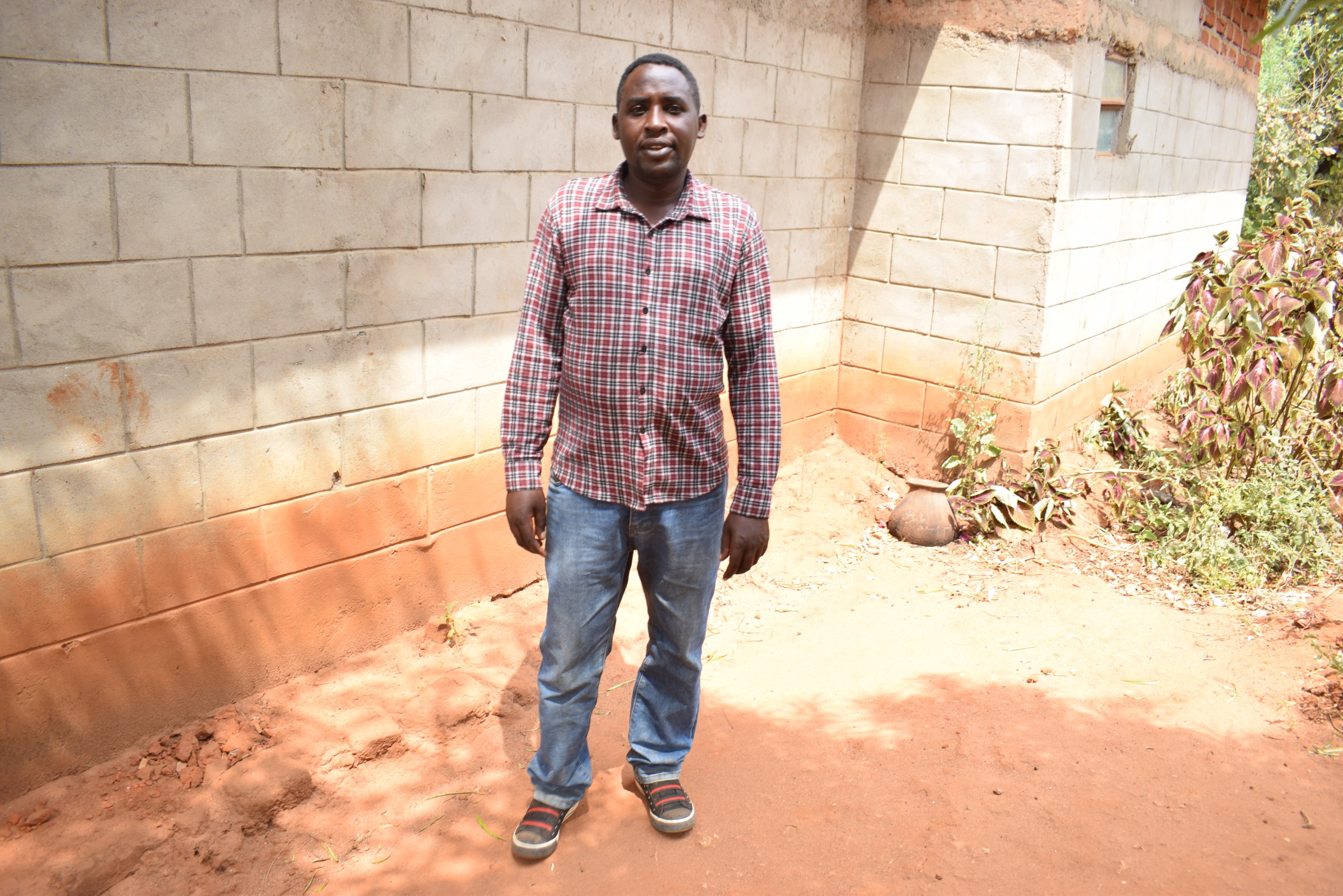
Jeff Maluki, Field Officer
Field Officer Jeff Maluki spends a lot of time each day traveling between project sites. The semi-arid region of Southeast Kenya is vast and often dry.
“My job requires a lot of traveling as I have to visit several groups in a day which are often far apart. I spend around one hour thirty minutes, one-way, from my home to the groups,” he explained.
“I use my own motorbike to travel to the groups, and the journey is often bumpy and rocky as I travel on dry weather roads.”
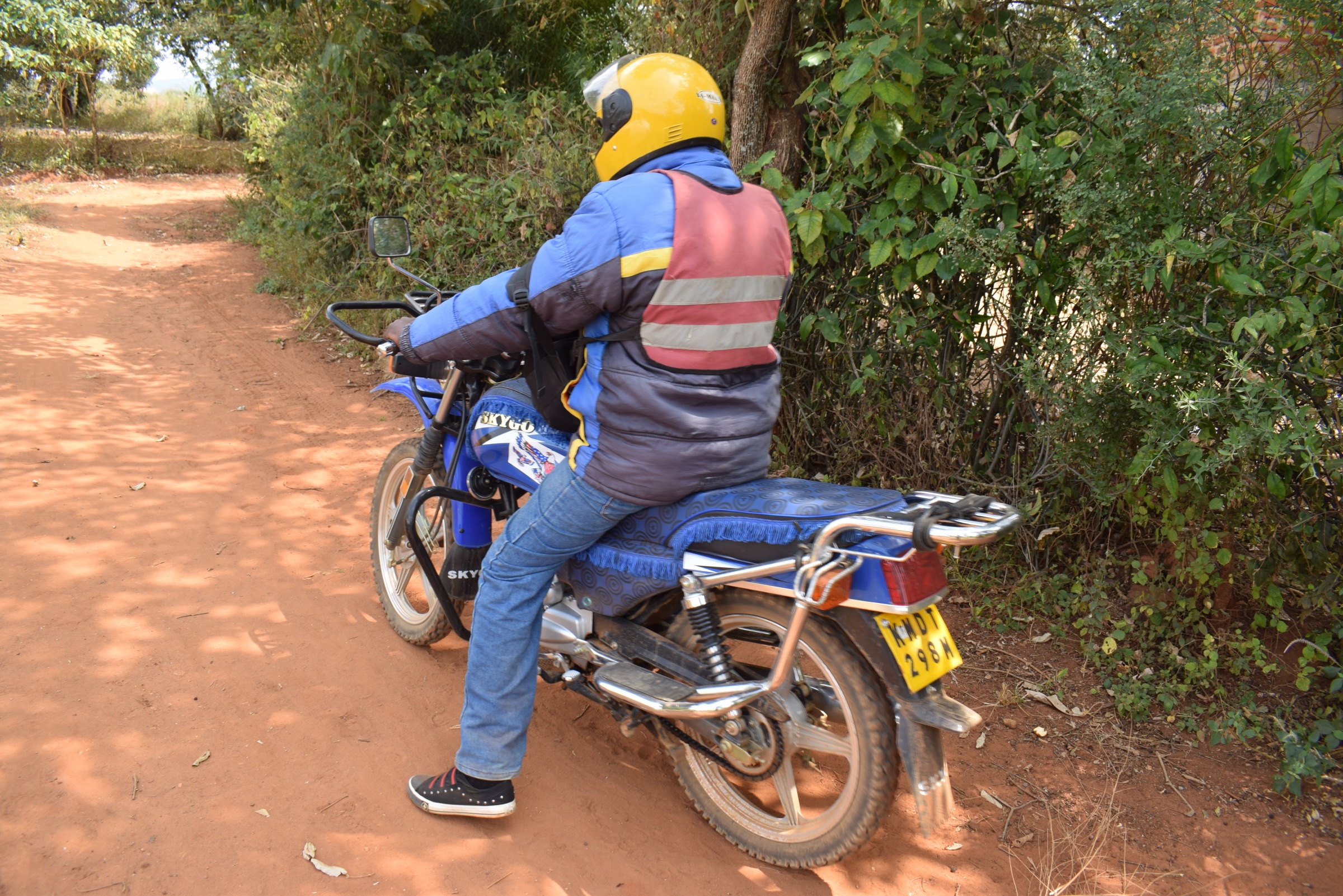
Jeff on his motorcycle
He is motivated each day “to see more lives being changed and more living standards being improved within the community I work.” A memorable example, for Jeff, is the irrigation scheme set up by members of the Katelembu Mazingira Initiative self-help group after the construction of a sand dam and well in their seasonal riverbed. The basic technology now provides water throughout the year.
“The irrigation scheme that was installed really benefited them as they managed to engage in largescale farming of vegetables such as tomatoes, kale, onions, and green pepper, among others. From the income they earned from selling the farm products, they managed to purchase pipes to establish a piping system to pump water to their tanks. The project really improved their living standards,” Jeff said.
Recently, we spoke with Jeff about his day-to-day work and how the COVID-19 pandemic impacts what he does. The following conversation is edited for clarity.
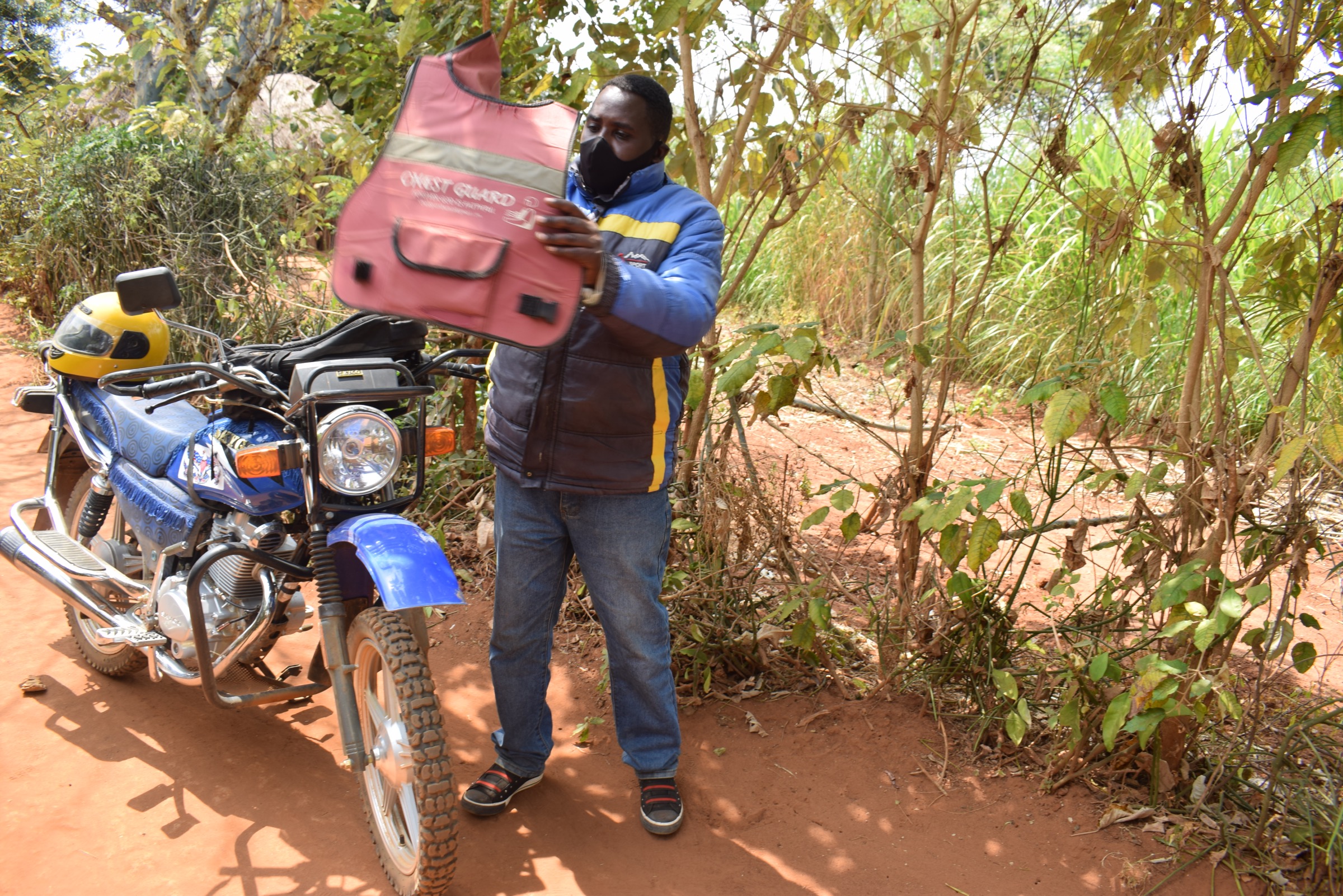
Before the COVID-19 pandemic, what did an average day look like for you?
I work as a field officer in the Matiliku region of Makueni County. My job often entails interacting with communities and mobilizing them to implement water, agricultural, and environmental conservation projects. Before the COVID-19 pandemic, I would meet two to three groups in a day to discuss community development projects, conduct smart agriculture training, and assess sand dam site preparations, material collection statuses, or monitor project functionalities. My day often began at 7:00 am and ended at 5:00 pm, depending on the day’s schedule.
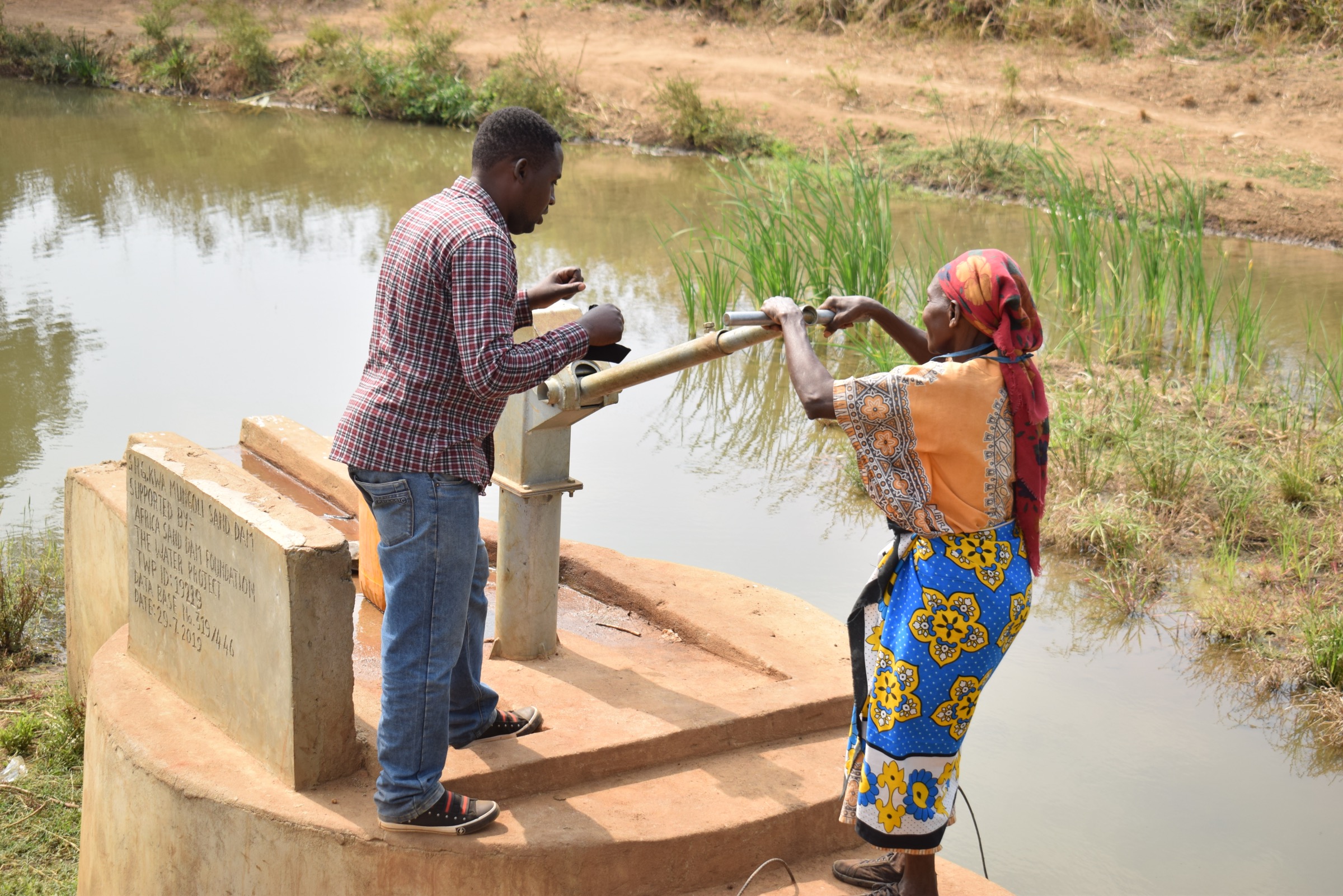
Jeff speaks with a community member at their well.
Since the spread of COVID-19, how has your work changed, if at all? Are there activities you are no longer able to do? Are there new activities you have taken on?
The nature of my work has changed a lot since the spread of COVID-19. Following the restrictions provided by the government, it has become harder to gather community members as we did before. Now, the limit is 15 members per meeting. This has affected my work as the projects’ construction timelines are not met. Local materials for sand dam construction are slower due to reduced manpower, and the training that we conducted now has a very low member turnout.
Please walk us through a typical workday for you right now.
A typical workday while visiting a group constructing their sand dam project:
6:00- 6:30 am – Personal preparation (taking a shower, preparing, and having my breakfast).
6:30-8:00 am – Leave home and head to the first group of the day.
8:00-9:00 am – Arrive at the group, wait for the members to arrive, then meet up with them to discuss the project’s progress, challenges, and resolve the possible solutions. Also, discuss with the artisan on-site the challenges faced and the progress of the construction process.
9:30-1:00 pm – Proceed with the construction process. I assist the members as they construct the sand dam and also supervise their progress.
1:00-2:00 pm – Break for lunch.
2:00-5:00 pm – Construction progress, monitoring, and supporting the group where possible.
5:00-5:30 pm – Assemble the construction tools, pack them up, pray, and then dismiss the group members for them to head home.
5:30-7:00 pm – Travel back home.
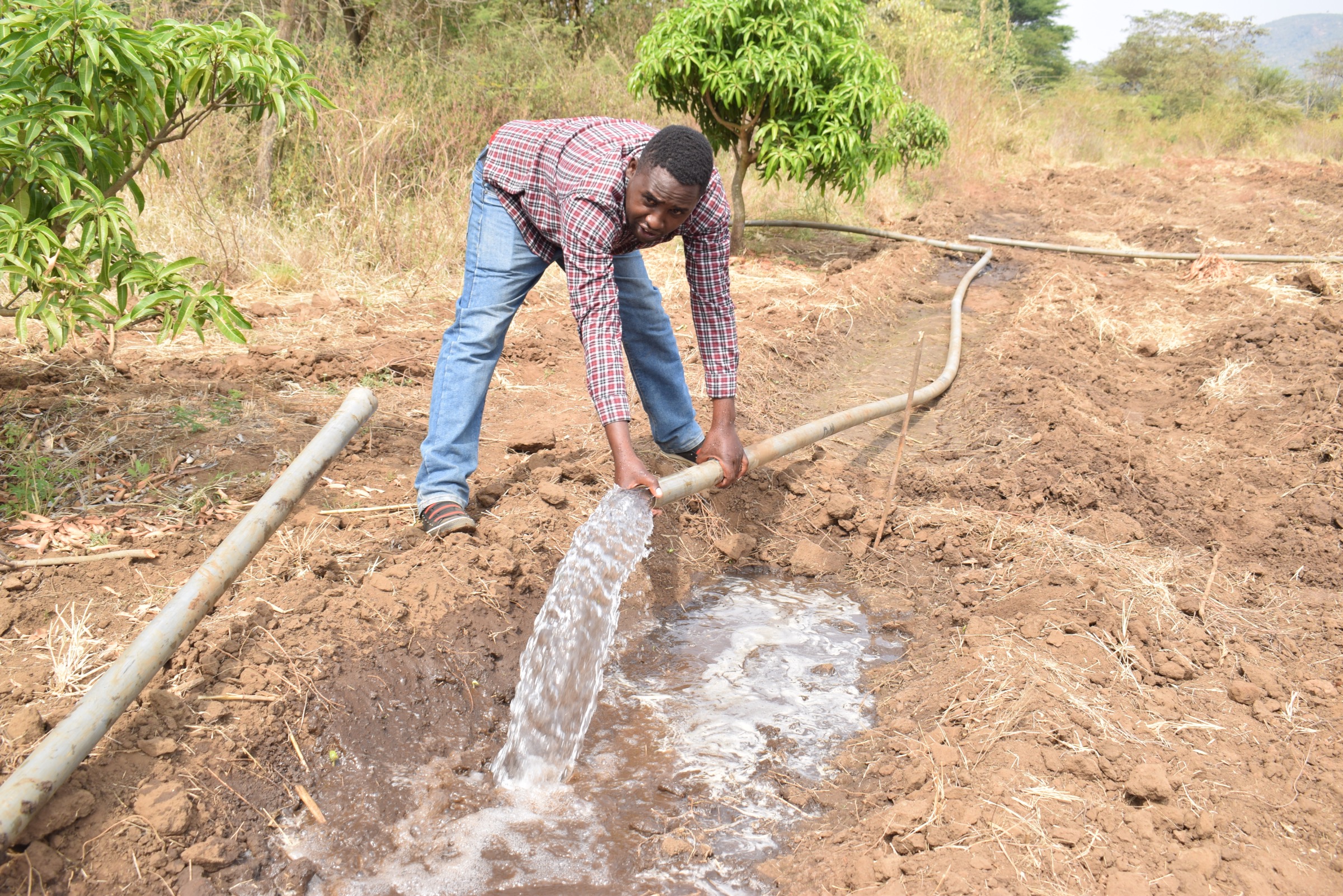
Jeff works on his farm at home.
Please share a story of the most challenging situation you have ever faced while working with a community or school.
The most challenging experience for me was during the sand dam construction with the Nduti Self-Help Group. We experienced very heavy rains as they were constructing their sand dam. All the sand which they had gathered was carried away by water. The farmers also wanted to get back to work on their farms, resulting in low turnout. Given that the completion timeline was fast approaching, I had to call on all the members to contribute money for purchasing sand to complete the sand dam construction.
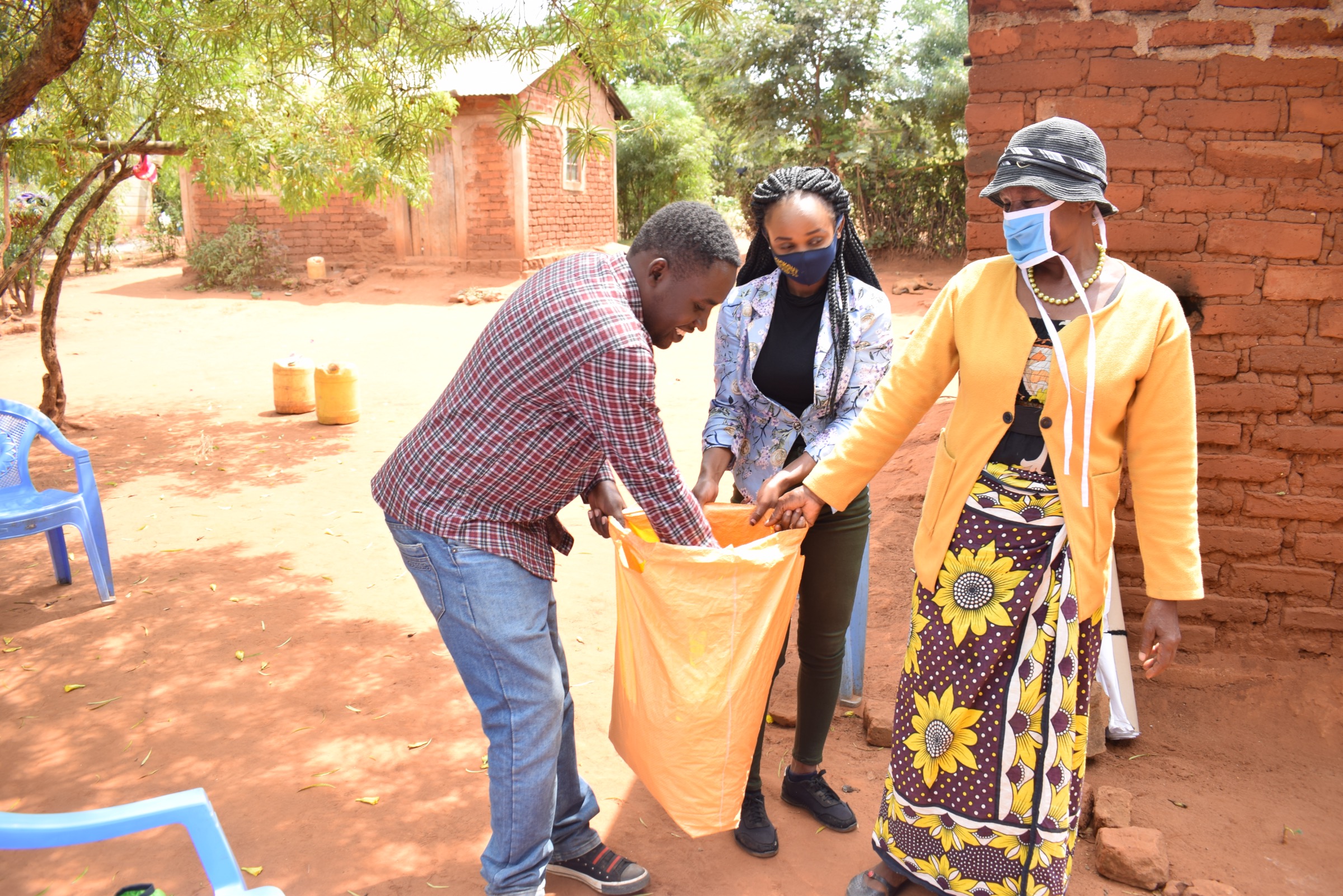
Jeff and fellow field officer Christine (center) visit a community member’s home.
Tweet